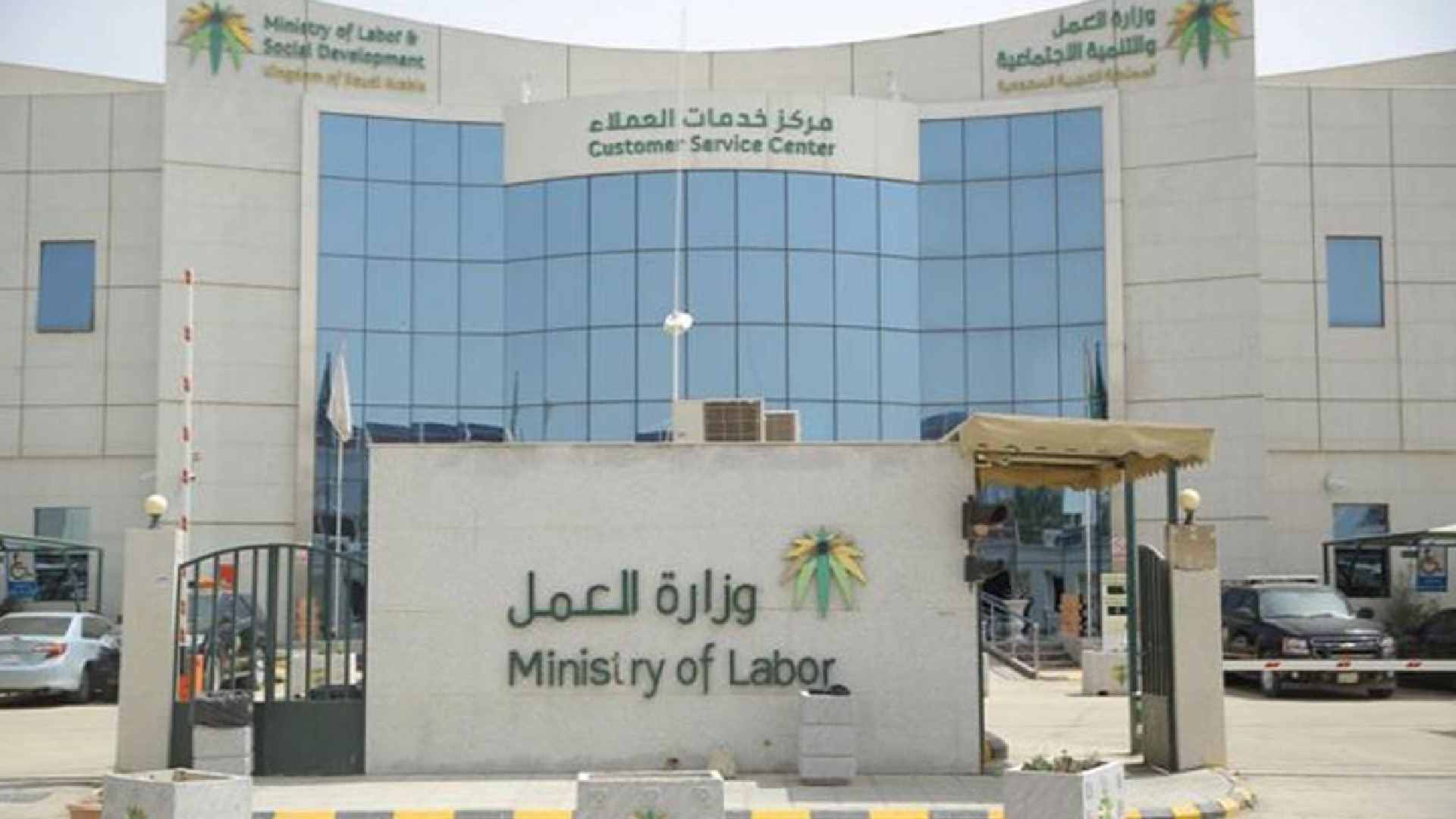In this article, we will explore the labor laws in Saudi Arabia and examine recent updates and reforms. We must explore its multifaceted roles, including formulating labor laws, overseeing compliance, and cultivating a harmonious employment ecosystem. Also, we will outline the key responsibilities of this influential institution, which is essential for both employers and employees.
Importance of Ministry of Labor in Saudi Arabia

The Ministry of Labor Saudi Arabia, recently rebranded as the Ministry of Human Resources and Social Development (MHRSD), occupies a paramount position in the Kingdom’s socioeconomic landscape. Its multifaceted importance reverberates across various dimensions of the nation’s progress.
It is the linchpin for Ministry of Labor and Social Development in the Kingdom, and its significance cannot be overstated. Firstly, it acts as the custodian of labor laws and regulations. Also, the ministry meticulously crafts and enforces these laws to foster a fair and just employment environment.
Additionally, the Ministry plays a pivotal role in cultivating an environment conducive to economic growth. Certainly, it formulates policies that strike a balance between the interests of employers and employees; thus, it creates a robust labor market that fuels the Kingdom’s prosperity.
Moreover, the MHRSD is instrumental in ensuring the well-being and rights of workers. It champions their cause by safeguarding their rights, monitoring labor conditions, and providing mechanisms for dispute resolution. This proactive stance enhances the confidence of the workforce, both local and expatriate, in the Kingdom’s labor market.
Labor Laws in Saudi Arabia
The Ministry of Labor Saudi Arabia, known as the Ministry of Labor KSA, wields significant authority in shaping and enforcing labor laws that govern the Kingdom. These laws, meticulously crafted and vigilantly upheld, serve as the bedrock upon which the nation’s labor market thrives.
These labor laws, under the umbrella of the Ministry of Human Resources and Social Development (MHRSD), are designed to create a robust framework that safeguards the rights of both employers and employees. Overall, they encompass a wide spectrum of regulations and crucial aspects of employment. For instance, working hours, wages, safety standards, and dispute resolution mechanisms.
One pivotal aspect is the enforcement of labor contracts, ensuring that people follow the terms and conditions of employment. Of course, this fosters trust and predictability in the labor market, crucial for its stability and growth.
Moreover, the labor laws establish mechanisms for dispute resolution, providing a fair and impartial platform for addressing grievances. This helps maintain industrial harmony, essential for the Kingdom’s economic prosperity.
Recent Updates and Reforms in Labor Laws and Regulations
The Ministry of Labor Saudi Arabia remains committed to the continuous enhancement of labor laws and regulations. Indeed, there have been significant reforms in the recent years, marking a crucial chapter in the evolution of labor standards. These updates underscore the commitment of the Ministry of Labor and Social Development to foster a more equitable and dynamic labor market.
One noteworthy reform from the Ministry of Labor KSA is the strengthening of employee rights, ensuring fair treatment and compensation. This has engendered a climate of trust between employers and employees, bolstering the overall work environment.
The Kingdom’s efforts to attract foreign talent and investment have led to reforms in labor mobility and work visas. Streamlined processes make it easier for skilled professionals to contribute to the nation’s growth.
Additionally, empowering women in the workforce has been a pivotal focus area of the Labor Ministry of Saudi Arabia. The Ministry’s initiatives promote gender equality, opening up new outlooks for women in various industries.
Key Roles and Responsibilities of the Ministry of Labor KSA

The Ministry of Labor Saudi Arabia is entrusted with a diverse set of key roles and responsibilities. Understanding the key roles and responsibilities of the Ministry of Human Resources and Social Development (MHRSD) is essential to grasp its significance fully. Let’s delve into some of its core functions:
Employee Rights in Saudi Arabia
Employee Rights in Saudi Arabia holds paramount importance within the purview of the Ministry of Labor Saudi Arabia. The Ministry, through a framework of robust labor laws, strives to safeguard and uphold these rights.
Employees, both Saudi nationals and expatriates, benefit from these protections. Key aspects encompass fair working hours, equitable wages, occupational safety, and dispute resolution mechanisms. The Ministry of Labor KSA ensures that labor contracts are transparent and adhered to by employers, creating a conducive work environment.
It champions non-discrimination and equal opportunity, paving the way for a diverse and inclusive labor force. Furthermore, the Labor Ministry of Saudi Arabia promotes job security, addressing issues related to wrongful termination and unfair labor practices. Through regular inspections and compliance checks, the Ministry of Labor and Social Development ensures that businesses adhere to these regulations.
In short, the Ministry of Labor Saudi Arabia endeavors to create an equitable and just labor landscape, protecting the rights and dignity of all workers, and fostering a harmonious employment environment.
Work Visas and Residency Permits
Obtaining work visas and residency permits in Saudi Arabia is a crucial aspect of the nation’s labor landscape, overseen by the Ministry of Labor Saudi Arabia. These permits are the linchpin for both foreign workers and businesses operating in the kingdom.
The Ministry of Labor KSA ensures that individuals seeking employment in the country adhere to the established guidelines and regulations. To secure a work visa, prospective employees must fulfill specific requirements, which often include a valid employment contract with a Saudi employer. This process is meticulously supervised to maintain the integrity of the labor market.
Residency permits, commonly referred to as “IQAMA” in Saudi Arabia, are equally vital. These permits grant foreign workers the legal right to reside and work in the country. The Ministry of Labor and Social Development (MHRSD) oversees the issuance and renewal of these permits, ensuring that employees remain compliant with local labor laws.
Businesses in Saudi Arabia must collaborate closely with the labor ministry of Saudi Arabia to sponsor work visas and residency permits for their foreign workforce. This collaboration necessitates adhering to the established regulations and demonstrating a commitment to providing a safe and fair work environment.
Indeed, the Ministry of Labor Saudi Arabia safeguards the interests of both employers and employees throughout this process. By maintaining transparent and efficient visa and permit procedures, it contributes to a thriving labor market that aligns with the nation’s economic aspirations and growth.
Empowering Women in the Workforce
Empowering women in the workforce is a prominent agenda within the Ministry of Labor Saudi Arabia (MHRSD). Certainly, the MHRSD committed to breaking down barriers that have historically limited women’s participation in the workforce.
In recent years, Saudi Arabia witnessed significant steps in promoting gender equality. The Ministry of Labor KSA, along with various government agencies, took proactive measures to create a more inclusive work environment.
Another notable initiative is the removal of the driving ban on women, allowing them greater mobility and access to opportunities. Moreover, the MHRSD has been instrumental in advocating for equal pay for equal work, ensuring fair compensations for women.
Additionally, the Ministry has been actively involved in providing training and skill development programs tailored to women’s needs. Therefore, enabling them to excel in various professions. It has also supported businesses in implementing family-friendly policies that facilitate the work-life balance of female employees.
Business Compliance with Ministry of Labor
Ensuring business compliance with the Ministry of Labor Saudi Arabia is imperative for fostering a harmonious and lawful work environment. Companies operating in Saudi Arabia must adhere to a set of regulations established by the Ministry of Labor KSA.
To begin with, businesses must thoroughly understand the regulations set forth by the Ministry of Labor Saudi Arabia. These regulations encompass a wide range of aspects, including employment contracts, working hours, wage structures, and safety standards. It is essential for employers to comprehend these regulations to avoid potential legal pitfalls.
One of the central aspects of business compliance is adhering to labor contracts. These contracts should be meticulously prepared, outlining the terms and conditions of employment. Employers must ensure that these agreements are transparent, just, and in full accordance with the labor laws and regulations of the Ministry of Labor KSA.
Another critical element is providing safe working conditions. Businesses must maintain workplaces that meet the safety standards outlined by the Ministry of Labor and Social Development. This includes implementing measures to prevent accidents and injuries, conducting regular safety inspections, and providing necessary training to employees.
Lastly, businesses must stay updated with any changes or updates in labor laws and regulations. The Ministry of Labor and Social Development periodically revises these laws to adapt to evolving societal and economic needs. It is incumbent upon businesses to stay informed and make necessary adjustments to remain in compliance.
Contact for Ministry of Labor KSA for Inquiries and Assistance
When it comes to seeking assistance in Saudi Arabia, the Ministry of Labor Saudi Arabia stands reliable and accessible. To facilitate a seamless connection with this vital government entity, individuals, businesses, and employees have several avenues at their disposal.
The Ministry of Labor KSA, has streamlined its communication channels to ensure convenience and efficiency. For instance, you can communicate with the Ministry in the following ways:
-
Official Website
The Ministry of Labor and Social Development’s official website is a treasure trove of information. It offers a comprehensive repository of resources, including labor laws, regulations, and contact details for various departments. Navigating the website is straightforward, making it a valuable starting point for inquiries.
-
Contact Numbers
Direct communication is often the most effective way to address specific queries. The Ministry provides dedicated phone lines for inquiries, ensuring that individuals can connect with knowledgeable representatives who can provide guidance on labor-related matters. These phone lines are regularly staffed to assist callers promptly.
-
Email Correspondence
For those who prefer written communication, the Ministry of Labor KSA offers email support. Simply send an email to the provided address, and you will receive a response in a timely manner. This option is particularly useful for detailed inquiries or documentation submissions.
-
Local Branches
Across Saudi Arabia, the Ministry of Labor and Social Development has local branches and service centers. These physical locations provide face-to-face assistance, making it convenient for individuals and businesses to access services and resolve issues promptly.
How Saudi Arabia Vision 2030 Plan Will Affect the Labor Market
The Saudi Arabia Vision 2030 plan, led by the Ministry of Labor Saudi Arabia, is poised to have a profound impact on the labor market. This visionary plan is a transformative blueprint for the nation’s future, aimed at diversifying the economy, reducing dependence on oil, and fostering sustainable development.
One of the key facets of Vision 2030 is the development of a knowledge-based economy, which will require a highly skilled workforce. This ambitious goal aligns with the Ministry of Labor KSA’s mission to enhance human resources and social development. As the labor ministry of Saudi Arabia, the MHRSD will play a pivotal role in ensuring that the workforce is adequately prepared for the evolving job landscape.
Additionally, Vision 2030 aims to increase the participation of women in the workforce, empowering them to contribute significantly to the nation’s economic growth. The Ministry of Labor and Social Development, in collaboration with various stakeholders, is actively working to create an inclusive work environment that promotes gender equality and equal opportunities for all.
Furthermore, the plan envisions attracting foreign talent to Saudi Arabia, promoting international partnerships, and facilitating the transfer of knowledge and expertise. The Ministry of Labor KSA will be instrumental in streamlining labor mobility, ensuring fair treatment of foreign workers, and promoting a welcoming atmosphere for international professionals.
Conclusion
In conclusion, the Ministry of Human Resources and Social Development plays a pivotal role in shaping Saudi Arabia’s labor landscape. It ensures the rights of employees, fosters a business-friendly environment, and aligns with the ambitious goals of Saudi Arabia’s Vision 2030 plan.
Additionally, this visionary plan, is set to transform the labor market. Indeed, it has a focus on diversifying the economy, enhancing skills, empowering women, and attracting international talent. As labor laws and regulations evolve, staying informed and compliant is essential for employers and employees alike. The MHRSD continues to be a cornerstone in Saudi Arabia’s journey towards economic prosperity and development.

Would you like to know more about the Labor Ministry of Saudi Arabia and other topics? Visit our insights section for more articles like this.



